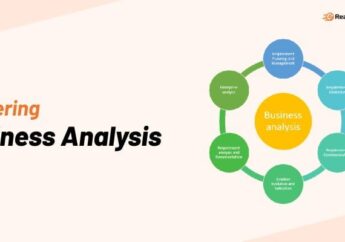Managing Workforce Diversity With HRIS Software
by Mony Shah Business Development 21 March 2024

In the present-day diversified workplace, successfully managing worker diversity is critical to organizational success.
With technological advancements, Human Resource Information System (HRIS) software has become a vital tool for HR practitioners. It simplifies operations and offers information that might help improve diversity management efforts.
HRIS software provides a variety of capabilities to assist businesses in navigating the challenges of a varied workforce. HRIS systems give the tools needed to build inclusive and fair work environments, such as tracking employee demographics and assessing performance statistics.
Companies that use these tools successfully may develop a culture of diversity and inclusion, which encourages innovation and growth.
Diversity in the Workplace
Workforce diversity refers to the variety of differences among people in an organization. This includes characteristics such as gender, race, ethnicity, age, sexual orientation, religion, and abilities. Embracing diversity in the workplace is crucial for fostering creativity, and innovation, and ensuring the well-being of all employees.
Diverse teams bring together a wide range of perspectives and ideas, leading to more creative problem-solving and decision-making processes. Moreover, inclusive environments where all individuals feel valued and respected are more likely to retain top talent and drive organizational success.
To build a truly inclusive workplace, organizations need to promote diversity at all levels of the company, from recruitment to leadership development. Training programs on diversity awareness and cultural competency can help employees understand and appreciate individual differences, fostering a culture of respect and collaboration.
Creating diverse and inclusive workplaces is not only a moral imperative but also a strategic business advantage. Companies that embrace diversity and inclusion are better positioned to attract top talent, enhance employee engagement, and drive innovation in today’s global marketplace.
Leveraging HRIS Software for Diversity Management

1. Centralized Data Management
HRIS software serves as a centralized repository for all employee data, including demographic information such as age, gender, ethnicity, and educational background.
By consolidating this data in one system, HR professionals gain easy access to crucial information about the workforce’s diversity profile. This centralized approach allows HR teams to track diversity metrics, identify trends, and make informed decisions regarding diversity initiatives and programs.
2. Diverse Recruitment and Hiring
A key aspect of managing workforce diversity is ensuring diverse representation in the recruitment and hiring processes. It facilitates this by providing tools for creating job postings, managing applications, and tracking candidates’ progress through the hiring pipeline.
Additionally, HRIS systems can support diversity-focused recruitment strategies by enabling targeted outreach to underrepresented groups, tracking diversity metrics in recruitment efforts, and mitigating biases in the hiring process through standardized procedures and automated screening tools.
3. Training and Development
Software can be instrumental in facilitating training and development programs tailored to address the needs of a diverse workforce. By analyzing demographic data stored in the HRIS system, organizations can identify skill gaps and training needs specific to different demographic groups.
HRIS portals can also track employees’ participation in training programs, monitor their progress, and evaluate the effectiveness of diversity training initiatives, enabling companies to create more inclusive and equitable learning environments.
4. Performance Management and Feedback
Effective performance management is essential for fostering a diverse and inclusive workplace culture. HRIS technology offers features for setting performance goals, conducting performance evaluations, and providing feedback to employees.
By integrating diversity and inclusion metrics into performance management processes, organizations can ensure that performance evaluations are fair, unbiased, and reflective of employees’ contributions, regardless of their demographic background. Moreover, HRIS systems facilitate ongoing feedback and coaching, promoting continuous improvement and professional development among all employees.
5. Employee Engagement and Retention
Maintaining high levels of employee engagement and retention is critical for the success of any diversity initiative. HRIS tools provide tools for monitoring employee engagement levels, conducting surveys, and gathering feedback from employees.
By analyzing demographic data alongside engagement metrics, companies can identify potential barriers to engagement for different demographic groups and take proactive measures to address them.
Additionally, the systems enable personalized approaches to employee retention, such as flexible work arrangements, career development opportunities, and recognition programs tailored to the diverse needs and preferences of employees.
6. Compliance and Reporting
Compliance with diversity-related regulations and reporting requirements is another area where software proves invaluable. HRIS systems can generate reports on diversity metrics, such as workforce demographics, representation at different organizational levels, and diversity-related training initiatives.
These reports not only help businesses ensure compliance with legal and regulatory standards but also demonstrate their commitment to diversity and inclusion to stakeholders, including employees, customers, investors, and regulatory bodies.
7. Continuous Improvement and Adaptation
It supports continuous improvement and adaptation of diversity management strategies based on ongoing feedback, data analysis, and company goals.
By leveraging analytics capabilities inherent in HRIS systems, organizations can identify areas for improvement, assess the impact of diversity initiatives, and adjust their strategies accordingly. This iterative approach enables firms to remain agile and responsive to the evolving needs and dynamics of their diverse workforce.

Conclusion
Implementing the recommended practices suggested in this article can dramatically improve an organization’s capacity to manage workforce diversity using HRIS software. Companies may foster a more inclusive work environment by implementing regular data updates, customizable reporting, user training, system integration, data security measures, feedback channels, and constant monitoring.
Leveraging software not only simplifies diversity management but also fosters a culture of diversity and inclusion inside the organization. Prioritizing these practices allows organizations to harness the potential of their software for human resources to promote diversity programs and generate good change in the workplace.
Read Also:







































































































